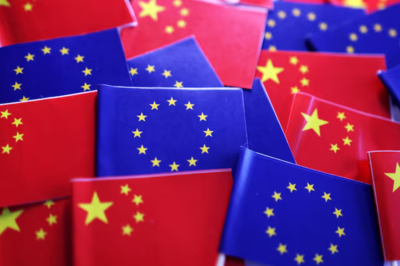ARTICLE AD BOX

Starting June 20, 2025, the European Union has introduced new regulations requiring all smartphones and tablets sold within its borders to meet sustainability standards and display detailed energy labels at the point of sale. This initiative, a part of the EU’s Green Deal, aims to reduce electronic waste, extend device lifespans, and empower consumers to make environmentally conscious purchasing decisions. The new rules mandate that devices carry standardized energy labels, prominently displaying scores for key attributes such as battery life, durability, and repairability. These labels, designed to be clear and consumer-friendly, include:* Energy Efficiency Class: Rated from A to G, indicating the device’s power efficiency.* Battery Life per Charge: Expressed in hours and minutes for real-world usage.* Battery Longevity: Measured in charge cycles, with a minimum requirement of retaining 80% capacity after 800 full cycles.
* Repairability Score: Graded from A to E, reflecting ease of repair and access to spare parts.* Drop Resistance Rating: Indicating the device’s durability against physical damage.* Ingress Protection Score: Assessing resistance to dust and water.Each label also features a QR code linking to the European Product Registry for Energy Labelling (EPREL), where consumers can access detailed technical specifications and compare environmental performance across models.The regulations align closely with practices already adopted by industry leaders like Apple. Most iPhones receive software updates for over five years, and Apple provides official repair services, a self-service repair program, and access to genuine parts for out-of-warranty devices. However, the EU’s requirements introduce stricter formalities, particularly regarding battery performance and spare parts availability.Under the new rules, batteries must retain at least 80% of their original capacity after 800 charge cycles, a standard that may require manufacturers like Apple to adapt their testing to comply with the EU’s framework. While Apple publishes battery specifications online, formal compliance with the EU’s testing protocols could necessitate additional adjustments. Furthermore, manufacturers are now obligated to provide key spare parts for seven years after the last unit of a model is sold in the EU—a mandate that slightly exceeds Apple’s current support timeline of five to seven years.The EU’s push for sustainability is expected to influence global manufacturing standards, as companies adjust to meet the bloc’s rigorous requirements. Environmental groups have praised the move, citing its potential to curb the 14 million tons of electronic waste generated annually in the EU. However, some industry analysts warn that compliance costs could lead to higher device prices, particularly for budget models.



.png)
.png)
.png)
















 3 hours ago
3
3 hours ago
3









 English (US) ·
English (US) ·